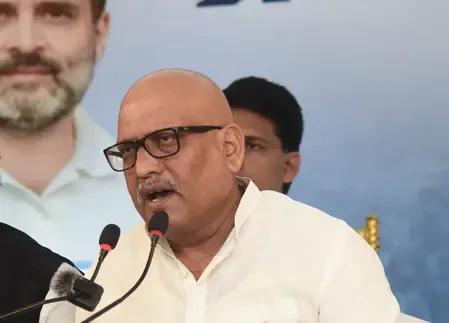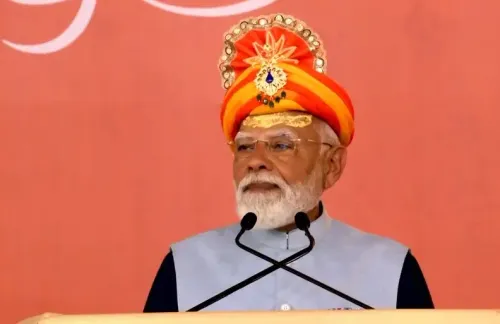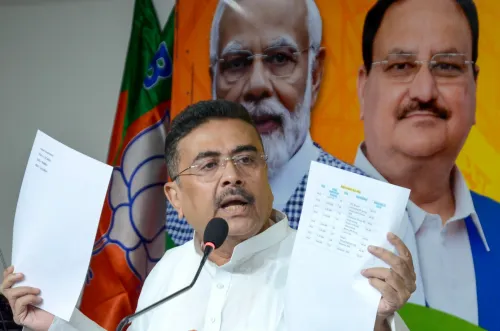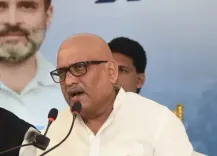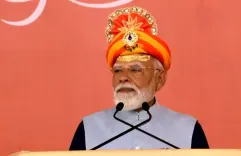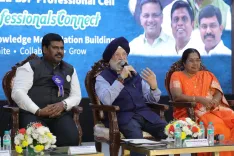Should the Condition for Obtaining Non-Agricultural Land License for MSMEs Be Eliminated?
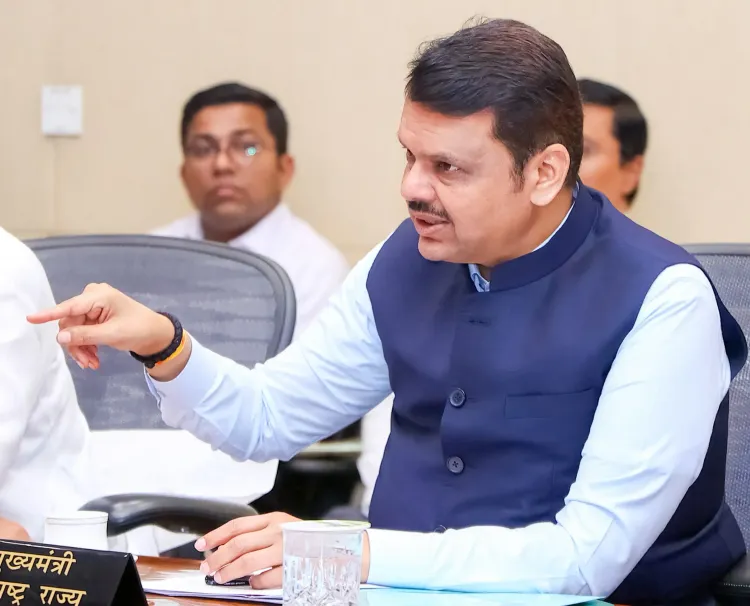
Synopsis
Key Takeaways
- Removal of licensing requirements can expedite establishment for MSMEs.
- Industrial townships will be developed to enhance worker conditions.
- Palliative Care Policy aims to support patients recovering from serious illnesses.
- Captive power generation is proposed to ensure reliable electricity for industries.
- Online payment systems will streamline government transactions with MSMEs.
Mumbai, Sep 19 (NationPress) Maharashtra Chief Minister Devendra Fadnavis directed the administration on Thursday to initiate actions aimed at eliminating the requirement for a non-agricultural license for micro and small enterprises as well as food processing industries within specified land limits.
This resolution was reached during a policy reform meeting led by the Chief Minister. CM Fadnavis emphasized that this change would facilitate timely industrial commencement for micro and small enterprises by significantly reducing the time needed to secure a non-agricultural license.
“The government is dedicated to implementing various policies that will drive the state’s advancement across all sectors. These initiatives should be designed with the future’s challenges in mind, benefiting the broader community. Many sectors that have the potential to propel our state ahead of others have been overlooked,” he stated.
“We are now focusing on policies that will lead to prosperity through the growth of these sectors. All initiatives will be dedicated to the state’s development and societal welfare,” said the Chief Minister.
CM Fadnavis proposed establishing 'Industrial Townships' in major industrial zones across the state, which would be crucial for the workforce employed in these industries. By providing accommodation nearby, worker productivity could be significantly enhanced. He also mentioned that all civic amenities should be integrated within these townships to ensure workers receive the same facilities available in urban and rural areas.
He also pointed out the necessity of implementing a control system under the Palliative Care Policy aimed at alleviating symptoms and pain for patients recovering from severe diseases such as cancer, particularly in advanced stages.
Furthermore, CM Fadnavis advocated for captive power generation in select industries, which would foster competitive electricity prices and assure reliable power supply for these businesses. He underscored the importance of regularly conducting skill enhancement training for industrial workers.
A scholarship program tailored for industrial workers should be introduced, similar to existing scholarship initiatives.
“To streamline payments made by the government to micro, small, and medium enterprises, an online portal should be established with an automated system that allows service providers to track their payment statuses,” he elaborated.
The Chief Minister also mentioned the need for innovative strategies to counteract the loss of exports to the US due to a 50% import duty, suggesting exploration of alternative markets.
He encouraged an increase in teak plantation to satisfy domestic demand for teak wood, urging the Forest Department to take appropriate actions.
During the policy reform meeting, various topics were discussed, including the Active Pharmaceutical Ingredient Manufacturing Policy, Palliative Care Policy, Micro, Small, and Medium Enterprises Payment System, Biogas Policy, Onion Mahabank, and the strategies to address the recently imposed 50% import duty by the US on Indian goods.


